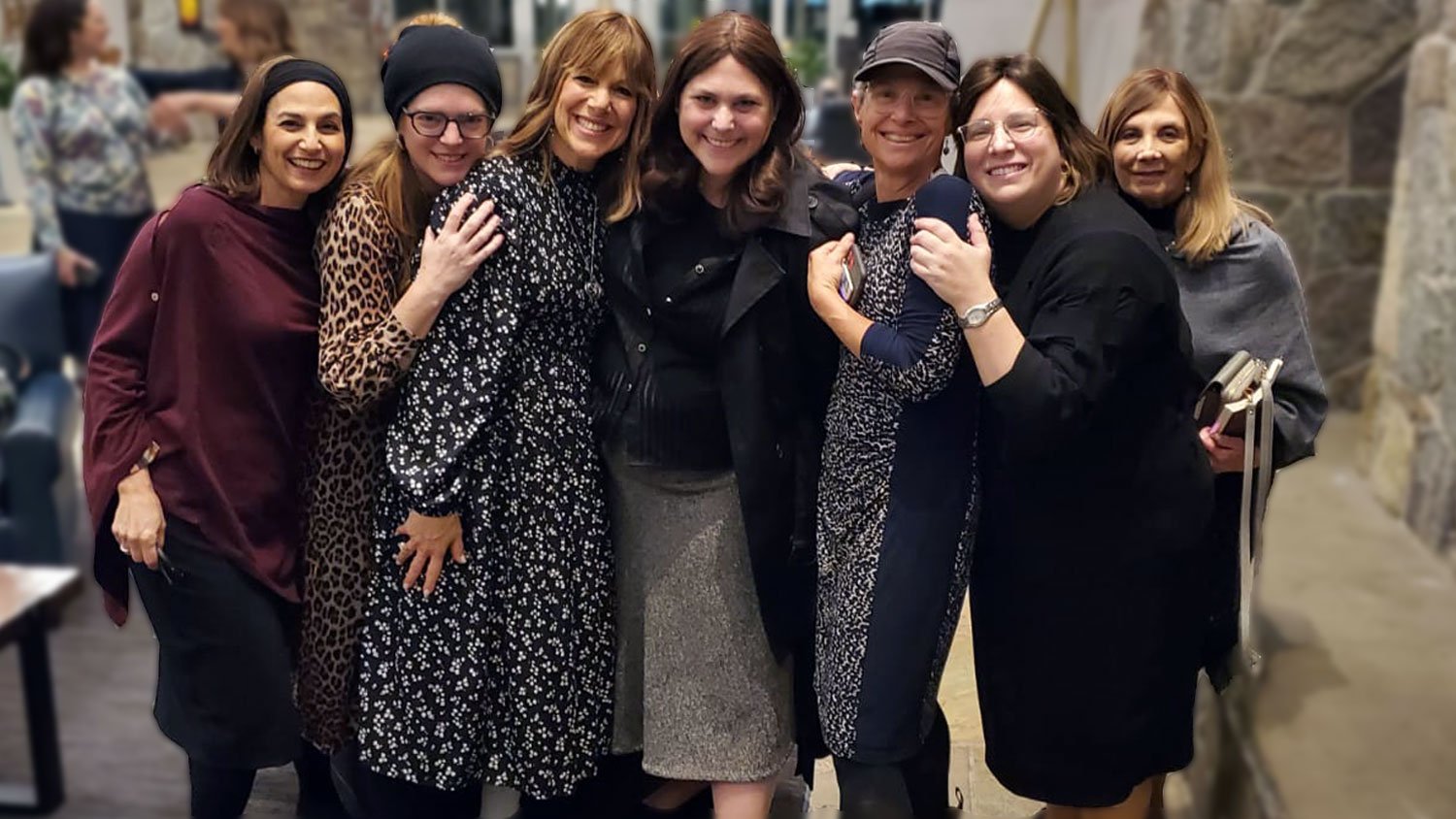Making Local and Global Connections
MMCs meeting at the Core Conference. Photo credit: Aliza Bulow
A new international network helps Orthodox Jewish women learn and grow together
For over a decade, Aliza Bulow’s job was to travel the globe supporting Orthodox Jewish female CEOs, communal professionals, and rebbitzens (wives of Rabbis) in their work as community builders. As an experienced consultant and educator, her one-on-one and small group visits were often transformative. From Savannah, Georgia to Mexico City, where there were problems, Bulow helped the women find solutions. Where things were good, she coached them to make things great.
However, Bulow realized that what she was doing couldn’t scale. Alone, she could never possibly help all the women looking for support. And while she was a deeply learned expert in her field, it would take a team of experts in fields ranging from psychotherapy to education to medicine to address the myriad concerns and questions that were popping up.
Clearly, she needed to create something bigger. She needed to find a way to empower these women to network and learn from each other and exponentially grow their impact as deeply rooted pillars of their communities. Thus, Core was born.
Today, thanks to Aliza’s vision—and support from Walder Foundation—Core provides training and resources to some 2,500 Orthodox women from more than 20 countries, with a strong presence in Chicago (the hometown of three board members and two employees, as well as many community members). The organization focuses on three key areas: virtual peer learning communities, in-person local support circles, and a rigorous 2-year mentorship training program.
Connecting Peers Worldwide
Just a few short years ago, if an Orthodox rebbitzen or school principal faced an issue she didn’t know how to handle, it wasn’t always clear where she could go to seek support. Now, thanks to Core’s virtual Communities of Practice that connect Jewish professional women in similar positions worldwide, help can be just a few keystrokes away.
“When there is a question in Los Angeles, the answer might arrive just moments later from a fellow practitioner in London. When someone is at a loss for the right words to help in a moment of need, they are not alone when they are part of the Core community,” said Bulow.
And it’s not just informal conversations. Participants in the core communities also participate in structured webinars and training sessions by experts in fields such as trauma support, relationship counseling, and more.
“The current shortage of mental health professionals means kallah teachers (women who support brides-to-be in the Orthodox world), for instance, are often being asked to be marriage therapists, and they’re not trained to do that,” said Bulow. “We offer professional development, resources, supervision groups, and referrals to help these women stay in their lane but also meet the needs of their community.”
For example, cross-communication between the groups also means that groups of kallah teachers can meet with groups of high school educators to better understand what types of things might be on the minds of young brides or what topics could benefit from being introduced earlier.
No topic is off-limits. In fact, even issues like sexuality and domestic violence are discussed (in a culturally sensitive way), giving communal professionals skills, resources and guidance for when challenging situations arise.
Circles of Support
Though the power of online networking is great, it can never replace the feeling of connecting in person with other women in the same community.
“Circles are Core’s answer to an age of communication without connection,” said Bulow. “It’s social without social media.”
Core Circles are structured “micro-communities” of five to 10 women who gather in person to build meaningful relationships through learning and conversation. Whether studying a Jewish text, playing a game, or sharing marriage and parenting tips, the women forge strong relationships and a deep sense of belonging that ultimately results in stronger homes and communities.
Training the Trainers
New in 2022, Core recently celebrated the graduation of its inaugural mentorship training cohort. Through an intensive two-year program, 35 women from five countries (the United States, Canada, Mexico, Israel, and the United Kingdom) studied pastoral care, theological guidance, and how to address common communal concerns.
Over the course of 60 sessions, plus fieldwork and supervision, the group—which included teachers, rebbetzins, outreach professionals, dating and relationship coaches, and other professionals, as well as stay-at-home mothers—explored topics such as emotional and relational intimacy, loss and healing, addiction, and more.
“The program develops, stretches, and guides women to become stronger pillars and leaders in their communities,” said Bulow.
With the resounding success of the first cohort, the program has now expanded to support two cohorts in 2023 and has changed its name to reflect a function broader than mentorship. Because graduates are Mashpias (Spiritual Guides), Mentors and [Pastoral] Counselors, it is now called the MMC Program.
“Core has expanded my understanding and passion in bridging the gap between parents and their children,” said participant Faige Leah Landau. “It has taught and inspired me to also work towards bridging the gap between chassidish (a type of Orthodox Judaism) and other communities worldwide in a way of bringing more compassion and unity to Am Yisroel (the Jewish people).”
Get more stories like this delivered to your inbox.
Sign up with your email address to receive news and updates.











